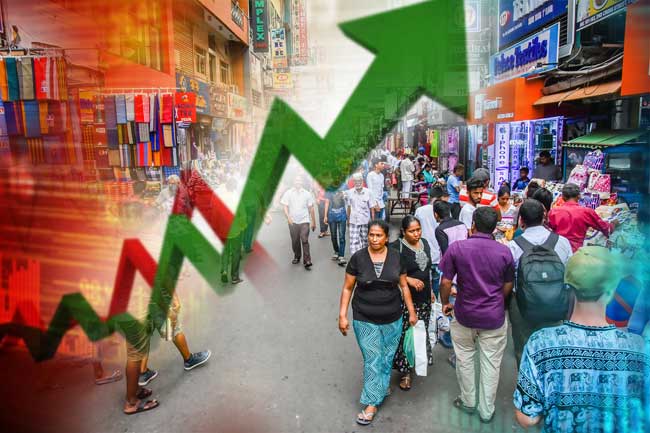Sri Lanka has to do transformational reforms and improve governance to come out of the current crisis a senor World Bank official said, as the island suffers the worst currency crisis in the history of its intermediate regime central bank.
Sri Lanka’s gross domestic product is expected to shrink to 9.2 percent in 2022 according to World Bank projections after a collapse of the rupee following two year of money printing to support a tax cut, which ended in import controls and default.
Sri Lanka has reached a deal with the International Monetary Fund for a reform program and a loan of 2.9 billion US dollars.
“To come out of the crisis, really fundamental and transformation reforms are needed, because in the past, a lot has gone wrong under difficult circumstances,” Hans Timmer the World Bank’s Chief Economist for South Asia said.
“Sri Lanka came into the crisis because of a lot of external shocks, because some of some internal shocks also but also because of macro-economic management mistakes.”
Sri Lanka is reforming is tax system to boost revenues, and is also trying to trim government spending. With the IMF program Sri Lanka is in talk with creditors to res-structure its debt.
Improving Governance
An important reform was for Sri Lanka to improve governance to make sure that the “system works there is a level playing field and there are fewer opportunities for a mis-use of the system or even corruption,” Timmer said.
“The first priority is to set up a very efficient social safety net and put in place some measures so that a large part of population can become more productive and have access to markets and to finance,” Timmer said.
Before new funding came the Sri Lanka had to do the required reforms, improve governance and also make progress on debt sustainability alongside the IMF program.
Governance of spending, procurement and governance of the financial sector were areas Sri Lanka had to improve, Timmer said.
State enterprise reforms are also required.
Sri Lanka ongoing import controls and permits also have negative effects.
“Anytime you have this kind of restriction and you start introducing a permit system – whether you can import or not – you create opportunities for mis-using that system also,” he said.
Some critics date the corruption that gripped the public sector in the island to the import and exchange controls of the 1970s, where the economy was closed as the Bretton Woods collapsed and money was printed triggering forex shortages.
Sri Lanka has systematically tightened exchange and import controls since an intermediate regime central banks was set up in 1950.
Improving Opportunities
The World Bank played a key role in previous crises in Sri Lanka including in war affected areas and Covid-19 pandemic.
For many year the agency supported education reforms across the country, and focused on improving access to markets.
Helping women participate more in economic activities was an important change that was needed, Timmer said.
New funding could come after the IMF program and required reforms and governance improvements are made.
Sri Lanka’s government has said it is requesting the World Bank to reverse graduate the country from the current more market based lending under the World Bank’s International Bank for Reconstruction and Development to the International Development Association loans given to poorer countries.
“The current situation is difficult for lending and we are discussing with the government all kinds of options on how we can resume lending including whether under certain conditions there could be access to more conditional lending that IDA countries can benefit from,” Timmer said.
“And those are ongoing discussions.”
Though the World Bank has stopped new funding until the required reforms and debt sustainability is reached, it has played a key role in supporting the ordinary public with the procurement of liquefied gas, fertilizer and other emergency relief.
“There is a lot of hardship in Sri Lanka,” Timmer said. “For that reason we reprogramed some of our lending programs that were in the pipeline to provide immediate relief.
“And that focus on the people should also be central when we work together in reforming the economy. Ultimately it is about the people. And give people more opportunities.”


